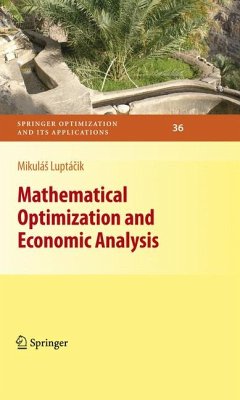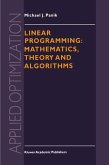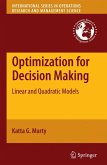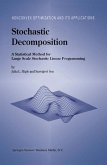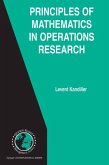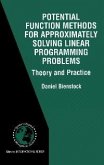The book presents specific examples to demonstrate each technique's advantages and applicability as well as numerous applications of these techniques to industrial economics, regulatory economics, trade policy, economic sustainability, production planning, and environmental policy.
Key Features include:
- A detailed presentation of both single-objective and multiobjective optimization;
- An in-depth exposition of various applied optimization problems;
- Implementation of optimization tools to improve the accuracy of various economic models;
- Extensive resources suggested for further reading.
This book is intended for graduate and postgraduate students studying quantitative economics, as well as economics researchers and applied mathematicians. Requirements include a basic knowledge of calculus and linear algebra, and a familiarity with economic modeling.
Dieser Download kann aus rechtlichen Gründen nur mit Rechnungsadresse in A, B, BG, CY, CZ, D, DK, EW, E, FIN, F, GR, HR, H, IRL, I, LT, L, LR, M, NL, PL, P, R, S, SLO, SK ausgeliefert werden.

